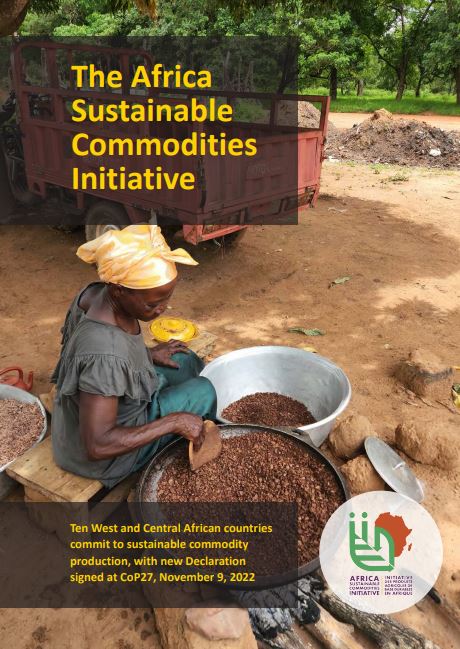The Africa Sustainable Commodities Initiative
This publication provides a summary of the Africa Sustainable Commodities Initiative (ASCI), and lists its key milestones and achievements of the countries involved and their commodity platforms. The ASCI is a landmark framework for governments committed to balance the need for agricultural production in the region, with the need for forest protection and conservation. The Congo Basin alone can hold 30 billion tonnes of carbon, equivalent to three years of global fuel emissions.
The report also provides a full timeline from 2012 up to 2030 which shows how the ASCI was developed, growing from the African Palm Oil Initiative that was established in 2015 into a multi-commodity declaration. The full declaration, that each of the countries signed and agreed to at CoP 27, is provided as an annex at the end of the document.
The ASCI is a multi-stakeholder partnership between governments, companies, Indigenous Peoples and local communities and international donors. It puts producer countries across West and Central Africa at the forefront of defining the principles for the sustainable development of cocoa, rubber, palm oil and coffee. The declaration for the ASCI was signed by ten countries in West and Central Africa. These participating countries are Cameroon, Central African Republic, Côte d’Ivoire, Democratic Republic of Congo, Gabon, Ghana, Liberia, Nigeria, Republic of Congo and Sierra Leone.
